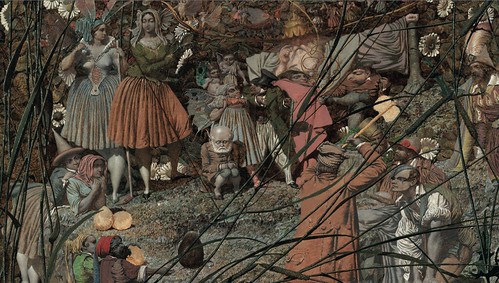It's true that meditation and concentration exercises will be the main thing for our spiritual striving, but when the elaboration of the astral body begins, the food that an esoteric eats will be of some importance.
It's especially important to avoid alcohol in every form. The bad effect of alcohol on the brain function has been scientifically shown, and knowledge of spiritual things is made completely impossible through its use. It's inadvisable to eat meat and fish.
If someone wants to undergo training in thinking, he mainly needs a well-constructed, healthy brain apparatus. Since present-day parents seldom give their children such well-built brains, one needs help to strengthen one's brain apparatus. And here it's mainly filberts that supply the brain-building substance. All other nuts are of less value and peanuts should be avoided altogether. Milk butter is the best fat. Coffee supports logical thinking, but doesn't make one a logical thinker by itself. Drinking too much coffee leads to hysteria in people who don't think much. One can get good ideas by drinking tea or by doing special exercises.
It's especially important for an esoteric to lead a life of moderation. An ancient sage said: Moderation purifies feelings, awakens ability, cheers one up and strengthens memory; the soul loses most of its earthy weight and thereby enjoys greater freedom. A man wouldn't be able to generate productive thoughts if he ate too much and too often, because his forces would be used in digestion, and there wouldn't be any left for thinking. Schiller, Shakespeare and many other writers lived on very little food. The mind is never so clear as after long fasting. The greatest saints lived on fruit, bread and water, and no miracles were ever done on a full stomach.
When a man works on himself he harmonizes his temperaments, but until then a melancholic pupil should eat fruit, so that its sun forces permeate the solidifying and rigidifying element in melancholics. Phlegmatics shouldn't eat black roots (Schwarzwurzel) because they would only increase his inner love of ease. Whereas a sanguine would benefit by eating root vegetables. One could almost say: A sanguine must be fettered to his physical body by food, otherwise he might fly away. The ego is predominant in cholerics, so they should avoid hot spices and stimulating food.
A master doesn't need solid food, and temperaments no longer influence or control him. He uses the choleric temperament to do his magic deeds, he lets the things of the physical world pass by him like a sanguine, he'll behave like a phlegmatic in his enjoyment of life and he'll brood about his spiritual findings and experiences like a melancholic. But it'll take us awhile to get that far, so we should try to bring our whole life into harmony with our spiritual striving. You only get as much out of life as you put into it.


2 comments:
One of history's great bean-haters was Pythagoras. He was also vegetarian, and made his own homemade playdough animals for sacrifices: "Iamblichus writes that Pythagoras abstained from eating meat and respected altars that were not tainted with blood." Timaeus of Tauromenium, the historian, reports that Pythagoras was involved with worship at the altar to Apollo Genetor at Delos. No animal was allowed to be sacrificed at this altar. Pythagoras recommended that figures made of barley-flour, honeycombs, and offerings of frankincense be made instead of blood sacrifice."
The ancient Egyptian priests also were forbidden to eat beans.
Furthermore, “if anyone bit into a bean and crushed it in his teeth, then put the bean in the sun’s rays it would eventually smell like a murdered man.”
“Creatures on this old Moon mainly lived in a nitrogen atmosphere. The Moon was surrounded by it, and it perished from an excess of nitrogen. The mushrooms that now still live on a more plantlike soil are remnants of the animal-plant kingdom that was present on old Moon. Since they contain much nitrogen they’re not good for occult development. Parasitic mistletoe is another remnant of that kingdom."
-RS
Post a Comment